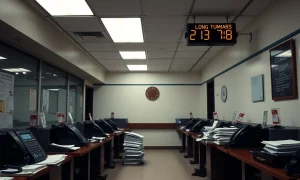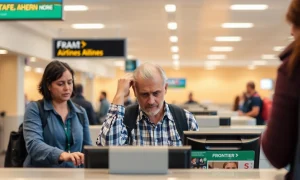Millions of UK taxpayers and businesses face growing frustration as HMRC unanswered calls reach staggering levels, potentially undermining tax compliance and revenue collection across the nation. This alarming situation emerged during recent parliamentary hearings, revealing systemic customer service failures at Britain’s tax authority.
HMRC Unanswered Calls Reach Crisis Levels
During a Commons Business Committee hearing last week, shocking statistics emerged about HMRC unanswered calls. Jonathan Athow, HMRC’s Director General of Customer Strategy and Tax Design, admitted the department only has funding to respond to 85% of calls. Consequently, between three and four million calls go unanswered annually. This admission came under intense questioning from Labour MP Liam Byrne, who sought clarity on customer service performance.
Impact on Tax Compliance and Revenue
The scale of HMRC unanswered calls creates significant compliance risks. Tax industry experts warn that inadequate support directly threatens government revenue targets. Seb Maley, CEO of Qdos, emphasized that each missed call represents a taxpayer trying to meet their obligations. The complexity of the UK tax system makes reliable advice essential. Without proper communication channels, taxpayers navigate unclear rules alone, often leading to errors and non-compliance.
Industry Reaction to Service Failures
Professional bodies and industry leaders have expressed sharp criticism regarding HMRC unanswered calls. They argue that the situation leaves millions “in the dark” about their tax responsibilities. The tax gap—estimated at £46.8 billion in owed but unrecovered tax—faces further pressure from these service shortcomings. Industry figures stress that improving taxpayer engagement has become a fiscal necessity, not merely a customer service issue.
Systemic Challenges and Digital Transition
HMRC faces multiple challenges contributing to HMRC unanswered calls:
• Reduced staffing levels across customer service departments
• Long waiting times and operational delays
• Failed attempts to push taxpayers toward digital-only services
• Increasing complexity of tax regulations
These factors combine to create a perfect storm of service delivery problems. MPs and professional organizations repeatedly call for urgent action to restore confidence in HMRC’s frontline support capabilities.
Path Forward for HMRC Improvement
While HMRC has pledged to improve service levels, industry experts demand rapid progress. Every HMRC unanswered call represents a missed opportunity to assist taxpayers fairly and efficiently. The authority must address staffing issues, streamline digital services, and ensure adequate funding for customer support. With billions in tax revenue at stake, effective communication channels have become critical to national fiscal health.
Frequently Asked Questions
How many calls does HMRC actually answer?
HMRC currently has funding to answer approximately 85% of incoming calls, leaving millions of taxpayers without assistance annually.
What impact do unanswered calls have on tax compliance?
Unanswered calls often lead to taxpayer confusion, errors in filings, and potential non-compliance due to lack of guidance on complex tax matters.
Are digital services replacing phone support?
While HMRC promotes digital services, many taxpayers still require phone support, particularly for complex queries that online systems cannot adequately address.
What is being done to improve HMRC customer service?
HMRC has committed to service improvements, but industry experts emphasize the need for faster progress and adequate funding to address current shortcomings.
How does this affect small businesses?
Small businesses particularly suffer from HMRC unanswered calls as they often lack dedicated tax expertise and rely heavily on HMRC guidance for compliance.
What is the tax gap mentioned in the article?
The tax gap refers to the difference between tax owed and tax actually collected, currently estimated at £46.8 billion in unrecovered revenue.








